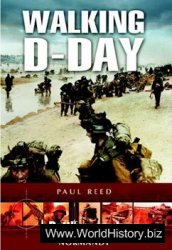Two events occurred in 1776 that pushed the Americans to declare independence. The first was the news that King George III had hired Hessian troops—foreigners—to fight against his own countrymen. Many whose loyalty to the Patriot cause had been suspect were now galvanized against the Crown.
The second event was the publication of the pamphlet Common Sense by Thomas Paine. Paine had arrived in America in 1774 with letters of introduction from Benjamin Franklin, who was still in England at the time. Ever a controversial figure, Paine was nevertheless a passionate believer in freedom and a radical political thinker and writer. Not long after arriving in America he wrote the pamphlet that became one of the most widely read documents in American history. (By today's standards, it would be a mega best seller.)
Paine's words, in keeping with the Age of Reason, were supremely rational. H began:
Society in every state is a blessing, but Government, even in its best state, is but a necessary evil; in its worst state an intolerable one: for when we suffer, or are exposed to the same miseries BY A GOVERNMENT, which we might expect in a country WITHOUT GOVERNMENT, our calamity is heightened by reflecting that we furnish the means by which we suffer. Government, like dress, is the badge of lost innocence; the palaces of kings are built upon the ruins of the bowers of paradise.

One hundred thousand copies were printed, and evidence suggests that most were passed around to many readers. Meanwhile, Congress debated the purposes of the war. Rumors and talk of independence abounded, but many were less than enthusiastic. Declaring independence would be a drastic step with severe penalties possible in case of failure.
On June 7 Virginia delegate Richard Henry Lee introduced a resolution to Congress calling for America to declare independence from Great Britain once and for all.
A lively debate ensued between those who supported the resolution and those who were still hesitant. On June 11 a committee consisting of Thomas Jefferson, Benjamin Franklin, John Adams, Roger Livingston, and Roger Sherman was appointed to draft an appropriate declaration. At Adams's suggestion, Jefferson prepared the first draft, and with changes made by Adams and Franklin the declaration was presented on June 28. On July 2 Congress voted to support independence, and on July 4 Congress formally endorsed Jefferson's Declaration. Realizing that their signatures on the declaration (which has been called "the defense brief for the treason trial") might be used against them, members did not begin signing it until August 2.
On July 3 John Adams wrote to his wife, Abigail:
The Second Day of July 1776, will be the most memorable Epocha, in the History of America. I am apt to believe that it will be celebrated, by succeeding Generations, as the great anniversary Festival. It ought to be commemorated, as the Day of Deliverance by solemn Acts of Devotion to God Almighty. It ought to be solemnized with Pomp and Parade, with Shows, Games, Sports, Guns, Bells, Bonfires and Illuminations from one End of this Continent to the other from this Time forward forever more.
You will think me transported with Enthusiasm but I am not. —I am well aware of the Toil and Blood and Treasure, that it will cost Us to maintain this Declaration, and support and defend these States. —Yet through all the Gloom I can see the Rays of ravishing Light and Glory. I can see that the End is more than worth all the Means.
Despite the morale boost of the Declaration, American morale in December 1776 was still low after repeated defeats and humiliating retreats. General Howe went into winter quarters in New York, leaving fourteen hundred Hessian soldiers at Trenton. Washington, in Pennsylvania and frustrated by his losses, was informed that the Hessians were unprepared. He gathered reinforcements by December 20, and on December 25th he crossed the Delaware River with his army.
Early on the morning of December 26 Washington struck, catching the Hessians completely by surprise as they recovered from their holiday festivities. Washington captured more than nine hundred Hessian soldiers and numerous supplies; his own army suffered only five casualties. The 2000 film "The Crossing" with Jeff Daniels is an excellent dramatization of Washington's daring raid on Trenton.
Heartened by his success, Washington struck again on January 3, 1777, at Princeton, where he achieved a quick victory over Cornwallis. Although the victories were not large in terms of numbers engaged, Washington's tactical victories gave an enormous boost to American morale, not only in his army but among all Patriots who got word of the victories. Prussian leader Frederick the Great called Washington's surprise attacks "brilliant." The British evacuated most of their troops from New Jersey, and Washington retired to winter quarters in Morristown.




 World History
World History









